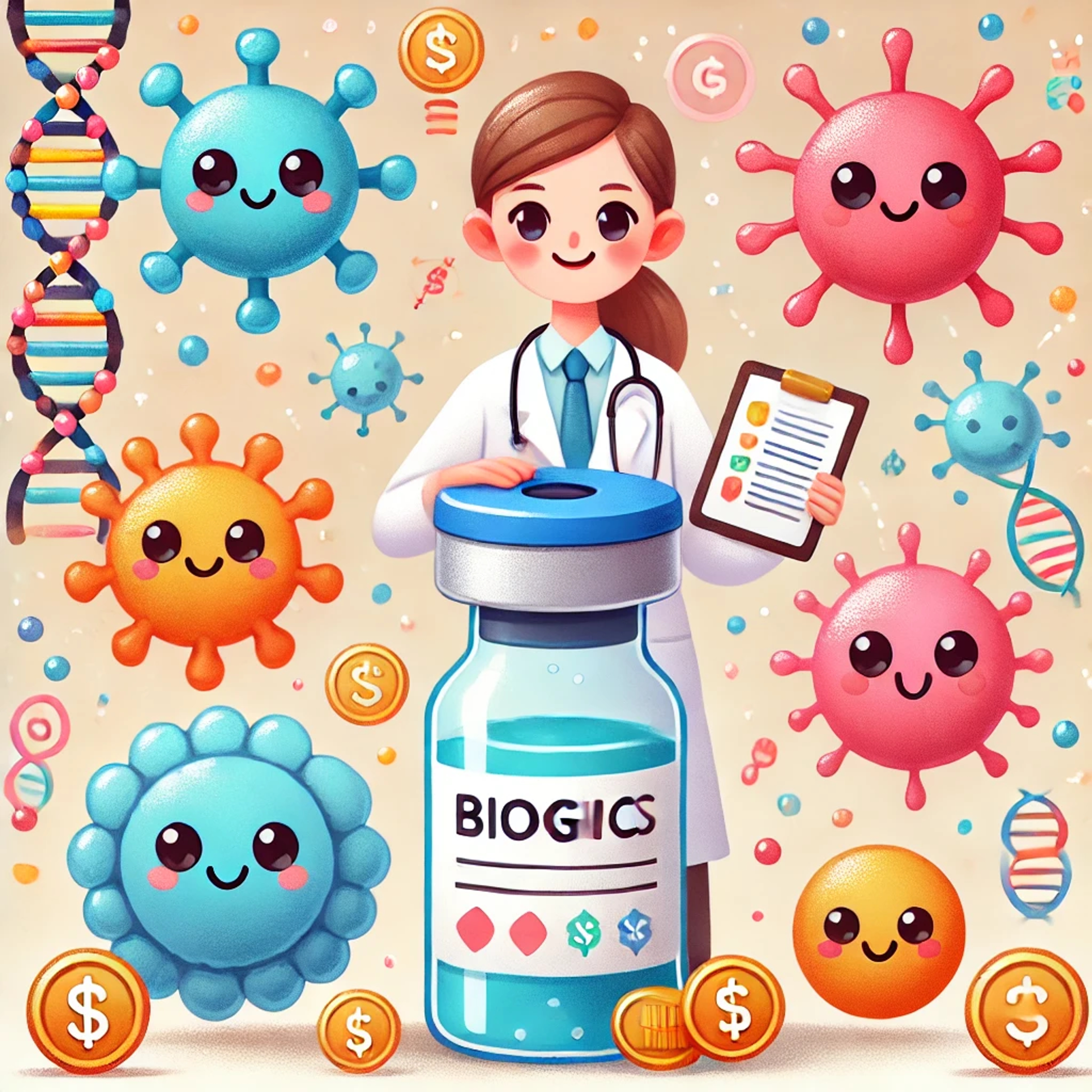10/20/2024
Understanding Biologics for Autoimmune Disorders: Innovations and Patient Considerations

Biologics offer a promising avenue for treating autoimmune disorders, due to their targeted approach in modulating the immune system. At eNavvi, we understand the complexities and considerations involved in prescribing biologics to patients. Here, we delve into the innovations in biologic treatments and what patients and healthcare providers should consider.
The Promise of Biologics in Autoimmune Disorders
Biologics are derived from living cells and are engineered to target specific components of the immune system that drive autoimmune diseases. They mark a significant advancement in treatment options, offering benefits such as reduced disease activity and improved quality of life. Unlike conventional drugs, which can affect the entire immune system, biologics aim to tackle precise pathways.
How Biologics Work
Biologics work by inhibiting specific molecules involved in the inflammatory process. For instance, TNF inhibitors form one of the most commonly used classes of biologics. They block the tumor necrosis factor, a substance responsible for inflammation and a key player in autoimmune diseases. This targeted action results in fewer side effects compared to traditional immunosuppressants.
Innovations in Biologic Therapies
The landscape of biologic therapies is rapidly evolving. Recent innovations focus on enhancing efficacy, reducing side effects, and improving patient compliance.
Monoclonal Antibodies
Monoclonal antibodies are a cornerstone of biologic therapies. They are designed to bind to specific antigens on immune cells, neutralizing their activity. New advancements have enabled the creation of monoclonal antibodies with improved specificity and longevity, potentially increasing their efficacy and duration of action.
Biosimilars
As patents for original biologics expire, biosimilars are entering the market. These are highly similar to existing biologic therapies but are more cost-effective. Despite being less expensive, biosimilars undergo rigorous testing to ensure comparable efficacy and safety profiles to the original products, providing affordable alternatives for patients.
Personalized Medicine
The quest for personalized medicine is driving innovation in biologic treatments. Advances in genomics and proteomics allow for the development of biomarkers that can predict a patient’s response to a biologic therapy. This helps tailor treatments to individual patient needs, optimizing outcomes and minimizing risks.
Patient Considerations
When considering biologics, several factors must be evaluated to ensure optimal treatment outcomes for patients with autoimmune disorders.
Safety and Side Effects
While biologics generally have fewer side effects than conventional therapies, they are not devoid of risks. Patients need regular monitoring for infections, as biologics can suppress the immune system, increasing vulnerability to opportunistic infections.
Cost and Insurance Coverage
Biologics are often expensive, which can be a barrier to access for many patients. Understanding insurance coverage and exploring programs for cost assistance are crucial steps. At eNavvi, we help physicians find cost-effective options through our pricing transparency tool, which can significantly reduce patient expenses.
Long-Term Efficacy
One of the challenges with biologics is maintaining efficacy over time. Some patients may develop antibodies to the biologic, rendering it less effective. Continuous follow-up and the possibility of switching therapies should be part of the treatment strategy.
Patient Preferences
Incorporating patient preferences into treatment decisions is vital for adherence to biologic therapies. Factors like route of administration and frequency of dosing can influence a patient’s willingness to continue treatment. Open communication between healthcare providers and patients is essential to address concerns and preferences.
Challenges and Future Directions
Despite their potential, biologics present challenges such as manufacturing complexity and high costs. Future research aims to overcome these barriers by exploring novel delivery systems, innovative drug designs, and more economical production processes.
Expanding the Horizon of Biologics
Research is underway to extend the applications of biologics beyond traditional autoimmune disorders. Exploring their use in conditions like allergies and certain cancers could revolutionize treatment paradigms.
Sustainable Access and Affordability
Ensuring sustainable access and affordability through healthcare policy changes and global collaborations is crucial as biologics become more prevalent in clinical practice. eNavvi is committed to supporting these efforts by offering resources that connect healthcare providers with cost-effective biologic options for their patients.
Conclusion
The evolution of biologics represents a remarkable journey in managing autoimmune disorders, offering targeted and effective solutions. However, their successful integration into clinical practice requires a nuanced understanding of their complexities and considerations for patient care. At eNavvi, we strive to empower healthcare providers with tools and resources that facilitate access to affordable medications, ensuring that innovative treatments like biologics are within reach for all patients. Explore how eNavvi can assist you in optimizing your prescribing practices and enhancing patient outcomes.
